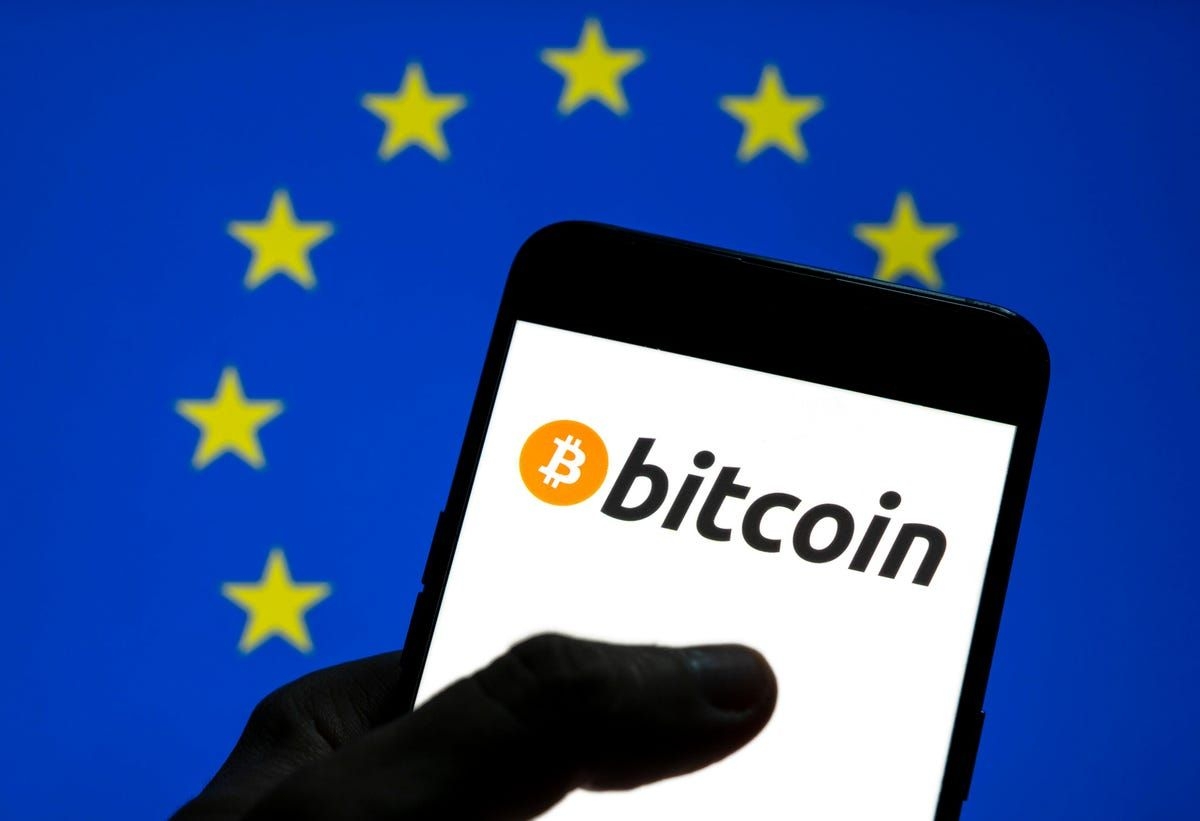The EU provides greater transparency in crypto regulation than in the USSOPA Images/LightRocket via Getty ImagesThe first quarter of 2023 has seen an extensive US cryptocurrency crackdown, raising concerns about innovation and capital flight. The closure of Signature Bank, the SEC suing Genesis and Gemini, and the CFTC lodging a complaint against Binance are seen by many as a targeted crackdown. On the other hand, the European Union (EU) has shown promise in offering a regulatory framework that safeguards consumers and encourages innovation. However, whether the EU can become a crypto-friendly hub remains debatable. In this article, Portuguese lawyer João Duarte Pereira, Unstoppable Finance Co-founder and CTO Peter Grosskopf, and Annerton Lawyer and Partner Alireza Siadat dissect the EU's approach to cryptocurrency in comparison to the US. The Promise of MiCA João highlights the importance of the Markets in Crypto-assets (MiCA) regulation in addressing the EU's concerns for financial stability and consumer protection. He stated, “MiCA should be seen as a work-in-progress, a dialogue with the industry, to develop a mutually beneficial relationship and accelerate growth and innovation." He also believes the crypto community should welcome a fair balance between regulation and innovation, ultimately benefiting the industry. Peter and Alireza see the EU as ahead of the US in developing clear regulations. While Peter highlighted that “Europe was leading regulation for data privacy with GDPR and will now do the same in the crypto industry,” Alireza noted that the EU's fragmented markets appear to have been a blessing for standardization in European regulation. He also stated that, “the EU is on a better track than the US, having taken the proper steps and assessed the problem in 2019.” The need for a holistic regulatory framework to ensure no regulatory arbitrage and a common understanding throughout the Single Market is driving the EU's approach.
Without a Clear Separation of Powers, Unfair Enforcement Reigns Peter and Alireza both criticize the recent enforcement-based approach in the US, stating that it makes it challenging for market participants to comply with unclear rules, and increases operational risks for companies. According to Alireza, the US approach to crypto is flawed because of the dilution of separation of powers, as the regulators who are supposed to supervise and oversee end up developing and enforcing new laws. Over the past two years, regulators have been enforcing their approach more strictly due to incidents such as Celcius, FTX, SVB VB , and Silvergate. Alireza emphasizes that regulators blamed cryptocurrency as the culprit in the cases of FTX and SVB, but in reality, the downfall of these organizations had nothing to do with cryptocurrency. When asked about the recent SEC notice to Coinbase, Peter agrees that treating crypto innovators fairly can be challenging. He suggests that “regulators must act carefully to avoid driving technologies to other jurisdictions.” Recently, many people have viewed BaFin's interpretation as being less crypto-friendly. Regulators who Play Nice Could Be the Future of Innovation However, Alireza believes that in the EU “the situation on paper certainly looks better than reality.” In recent years, the BaFin, the German regulator, has taken a less friendly and sometimes inconsistent approach to interpret and enforcing crypto companies. Alireza pointed out that approximately 20 companies are now waiting over 800 days to receive a confirmation from the BaFin regarding their license application. Although the EU is friendlier to crypto companies than the US, it is unlikely that there will be a mass exodus of such companies to the EU, despite the latter's efforts to balance fostering innovation and ensuring financial stability and consumer protection. According to Alireza, crypto hotspots will likely fragment, with companies offering more complex products, such as DeFi, setting up in places like Dubai and other markets where governments actively promote the crypto agenda and are keen on being seen as crypto-friendly. Despite some inconsistencies and delays by some national regulators in the EU, Peter, Alireza, and João agree that the EU serves as a global model in dealing with the complex world of crypto regulation.
Source : [The EU Vs.The US: A Tale Of Two Crypto Regulatory Approaches](news.google.com/rss/articles/CBMicmh0dHBzOi8vd3d3LmZvcmJlcy5jb20vc2l0ZXMvZGlnaXRhbC1hc3NldHMvMjAyMy8wNC8wNC90aGUtZXUtdnN0aGUtdXMtYS10YWxlLW9mLXR3by1jcnlwdG8tcmVndWxhdG9yeS1hcHByb2FjaGVzL9IBdmh0dHBzOi8vd3d3LmZvcmJlcy5jb20vc2l0ZXMvZGlnaXRhbC1hc3NldHMvMjAyMy8wNC8wNC90aGUtZXUtdnN0aGUtdXMtYS10YWxlLW9mLXR3by1jcnlwdG8tcmVndWxhdG9yeS1hcHByb2FjaGVzL2FtcC8?oc=5) undefined - Forbes / April 04, 2023
